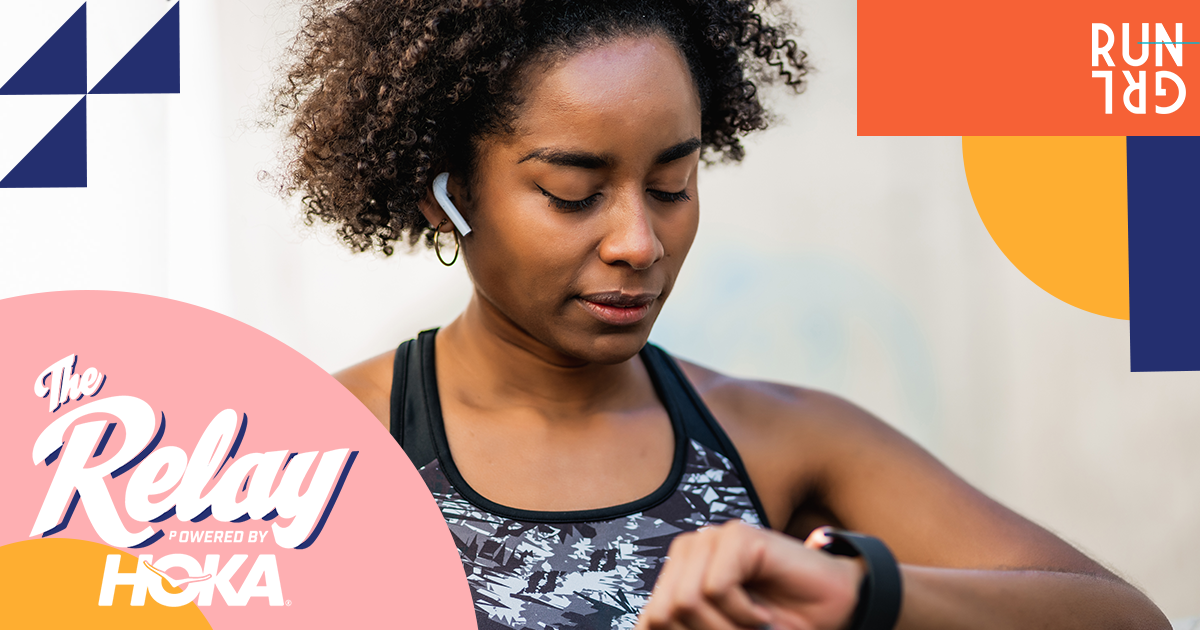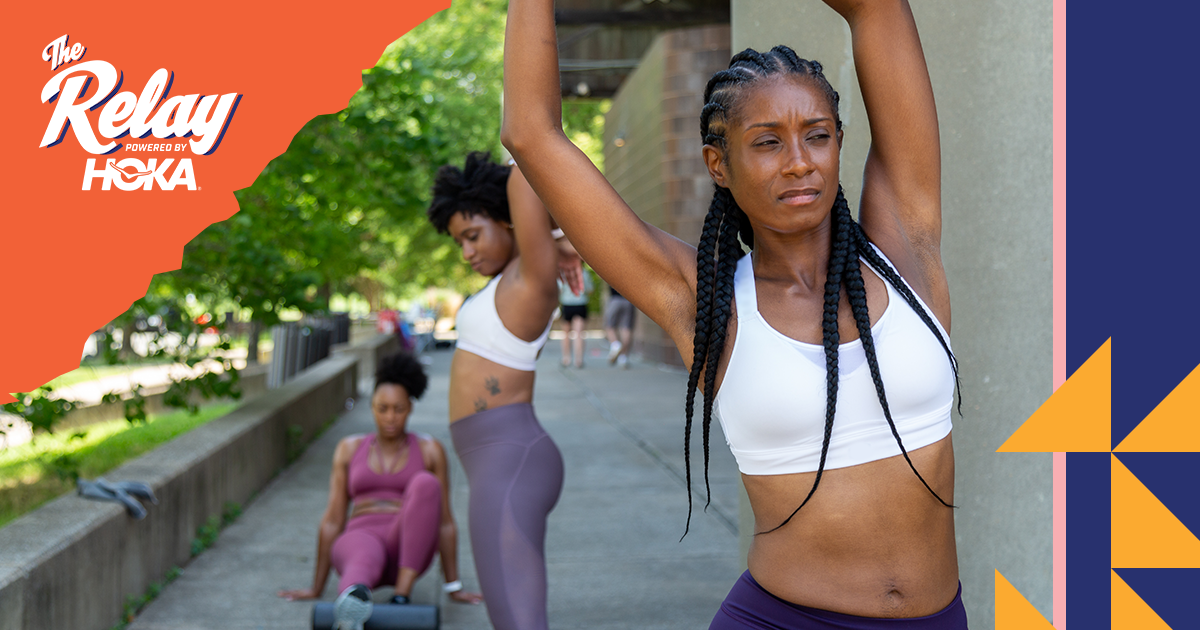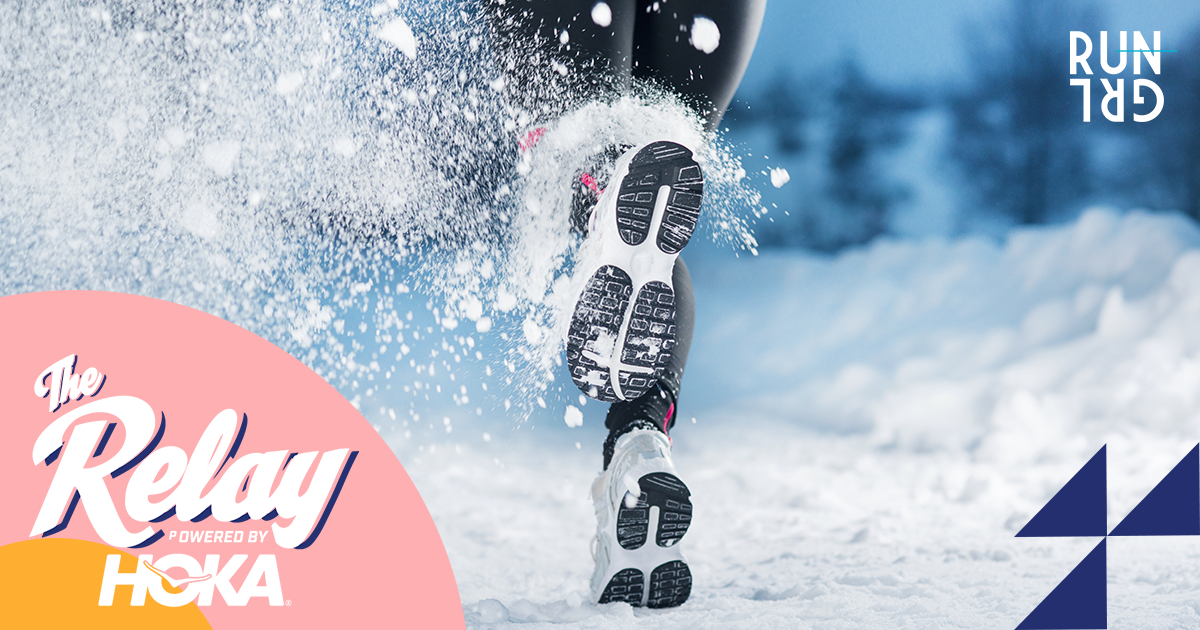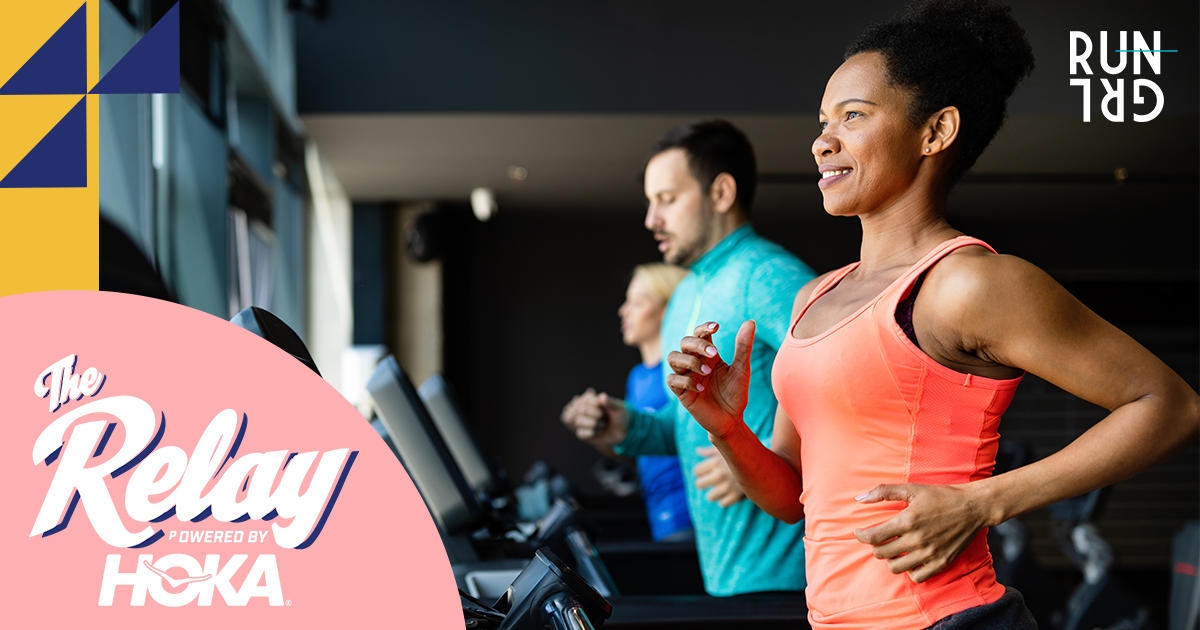The Relay: What You Can Learn from Past Race Performance
Photo: RUNGRL Design
by Nicole Lockhart, Contributor, and Ashlee Green, Co-founder and RCAA-certified Running Coach
If you’ve run a race before, you’re probably familiar with the old routine of mapping out your mileage for the weeks leading up to the race and planning out how to get ready for the big day.
But how often do you go back and really assess how you performed at past races? Sure, we all want to finish faster than we did before, but it’s important to consider your full training performance for hints at where and how to build a better race training plan overall.
Here are a few retrospective ways to achieve a better race day outcome and improve your entire training experience.
What to Asses From Past Race Training
Your Schedule
As you build out your training plan, it is important to find a schedule that builds in intensity and is achievable with your daily routine. From your past races, you’ll likely notice patterns about how and when you prefer to train. Consider whether you preferred morning runs or evening runs during your last race training? On which days of the week were you likely to log more mileage? The goal is to look for what benefited you by providing the optimal comfort physically and mentally as you prepare for race day.
Prioritizing running consistently requires being intentional about planning around your life. To allow for flexibility around school, work or family obligations, build in multiple options for run days, and allow for minor changes. A schedule that is too rigid can quickly be derailed by the slightest emergency or schedule change. Put pen to paper to write up your schedule or set reminders in your phone as a way to visualize the full training plan at a glance and motivate yourself each day around your weekly schedule.
Find a schedule and pace that's comfortable whether this is your second race or your fiftieth.
Your Gear
Training is a great time to assess your running gear. You’ve spent time finding the right tools to help you feel your best on the run and create the best results come race day. Still, although your go-to shoes, apparel, socks, headphones and favorite running accessories may be well-loved, they could also be well-worn.
How do your feet and legs feel after a run? Are you experiencing more discomfort than usual? Or even some new pains? If your go-to pair of running shoes are feeling noticeably uncomfortable, they may be getting close to the 300-500 mile mark. Check the cushion, tread and arch support, since these all are indicators of wear.
Likewise, is your sports bra starting to let you down or lose support? Make it a point to check on your faves and invest in new gear when necessary. This means not only right before a race, but early enough to train with as well. You know, “break them in.”
Last week, I noticed my Jaybird Tarah headphones weren’t staying in my ears for more than a quarter mile without repeatedly falling out. Turns out, it was time to change the rubber inner-ear grips. Take time to look over your favorite running tools, and show them love so that they can withstand your rigorous training schedule to come.
Your Diet
What and when you’re eating play a major role in how your perform. As you increase your runs and workouts, you’ll need to make sure that you are properly fueling your training. For some of us, that means making major changes to what we eat. For others it may mean adding additional meals to supplement the increased calorie burn.
This is not only about what you eat during race week, but about your diet as a whole. What worked for you during your last race? And what should you avoid around running days? For example, if you achieved optimal performance (and felt great doing so) while training with a high-carbohydrate or protein diet, be sure to incorporate those foods again.
Important nutrients to include in your training diet include complex carbohydrates, lean proteins, healthy fats and a multivitamin to hit all the key nutrients. That diet will look a bit different for each person, but it’s important to assess how you feel to determine if you may need to eat more (or less) of something.
Likewise, think about the times you’re eating. Some prefer not to eat before a morning run, however skipping breakfast altogether can affect how you feel, even on an evening run. According to the European Journal of Sports Science, “Omission of a carbohydrate-rich breakfast has previously been shown to impair endurance exercise performance in the evening.” Look back at how you performed last time and note the best meal times for yourself.
If you’ve never paid attention to this before, try tracking your meals while training with food journaling or with an app to keep note of your selections.
Your Workout Mix
Take note of which types of cross training work best for you when assessing past race training.
If in the past you’ve only done running-related training leading up to race day, find ways to add variety to the mix with cross training. Restorative activity, like yoga, has been shown to positively influence flexibility, ventilation, hypertension, mood, breathing regulation, and relaxation, all of which have been indicated in the improvement of run performance.
Did you use HIIT for cross training last time? Or were you more into cycling? Which was more helpful in gaining strength and endurance? Whether you’re strength training with weights, taking laps in the pool, or extending your flexibility, incorporating cross-training will improve your past race performance while building strength, agility and endurance. It’s also a great way to break up the monotony of training and introduce a fresh and renewing vibe to your schedule.
Your Rest
Giving yourself adequate rest while training and leading up to the race is crucial. To support your training it is best to include a mix of off-days, active rest days and adequate sleep. Think about the times during past race training where you felt most exhausted--during the first couple of weeks before you’ve really gotten into a groove, during peak weeks when you’re maxing out on mileage, and of course leading right up to race day. Plan ahead to give yourself more rest time on those weeks in particular, so that you’re prepared to take on those challenges.
In addition, you’ll want to find restorative activities that keep you moving on the days you’re not running. In a study conducted by the British Medical Sport Journal, results confirmed that “displacing sedentary time with physical activity of any intensity is most beneficial”.
When looking back on the amount of sleep you gave yourself during your last race training, how would you improve it? Consider that running more often means that you’ll need to add more rest time to your plan as well. And while early start times may require earlier bedtimes, plan your rest just as you would an important meeting that can’t be skipped.
Your Mental State
Every run is an opportunity to practice training your mind to cross the finish line. In past races did you find yourself distracted by the other runners or personal matters? Did you give yourself a centering meditation before showing up to the starting line? Is there a song that gets you pumped for racing?
On a recent episode of the podcast “A Life in Tracks”, eleven-time Olympic medalist Allyson Felix shared that after coming off of a disappointing Olympics in 2009, she decided to reevaluate her past performance by creating a competitive alter-ego that she modeled after Beyonce’s Sasha Fierce.
“I’m at this place in my life where I’m wondering, ‘Can I do this?’ And so, I was looking back at every aspect of training to change all that,” said Felix. “That’s where this alter ego came out. I needed to step it up and go after it and go get it.” She also said that Beyonce’s song “Diva” helps her shift her to a champion mental state before every big race.
We can assume this method of reevaluating past performance as well as how you feel while training clearly works for her, as this year in Tokyo, she surpassed Carl Lewis to become America's most decorated track and field Olympian.
Whether you’re prepping for your next race or trying to improve your run time in general, giving yourself a retrospective evaluation can help you tackle your next run with confidence.
Now, it’s your turn to review. Try this checklist before diving into training for your next big race:
RUNGRL Checklist: How to Review Your Past Race Performance
Time Check. Was your training schedule too rigorous last time? Was it unrealistic? How could it better align with your weekly obligations to minimize stress?
Gear Check. How many miles are on those shoes? Are your favorite leggings worn to bits?
Gut Check. What did you eat during your last race training? Be sure to assess both your full program diet, as well as specific foods during race week.
Cross Check. Did you incorporate enough cross training during your last race prep? How many days did you dedicate to yoga for flexibility or weights for strength training?
Mind Check. When did you feel your best during training? When were things the toughest? Make note of these times, and what was going on. See if you can set yourself up to avoid the same stumbling blocks and increase your best days.
Recovery Check. Rest days and sufficient sleep should be non-negotiable. Check your training from last time to see where you were most burned out and adjust your new schedule to allow for more recovery at those times.
Read more from our running coaches and experts in The Relay.
NOTE: MEDICAL DISCLAIMER - NOTE THAT THE ABOVE INFORMATION IS NOT INTENDED AS MEDICAL ADVICE AND DOES NOT REPLACE THE RECOMMENDATION OF A PHYSICIAN OR OTHER MEDICAL PROFESSIONAL. ALWAYS SEEK THE ADVICE OF YOUR PHYSICIAN BEFORE TRYING THESE OR ANY SORT OF WORKOUT PLAN, ESPECIALLY WHILE UNDER TREATMENT FOR YOUR INJURIES. VIEW THE FULL MEDICAL DISCLAIMER IN RUNGRL’S TERMS OF USE.
As co-founder and CEO of RUNGRL, a District Running Collective crew leader and an RRCA-certified running coach, Ashlee has found herself at the forefront of a movement to transform running culture, with a specific focus on creating safe spaces and experiences for Black women runners to connect and thrive.
Ashlee is a member of The RELAY Squad. Learn more about The RELAY.
Nicole Lockhart is a writer and runner living in NYC. She’s run races in support of such organizations as the Black Lives Matter, Leukemia Lymphoma Society, and CaringKing: Athlete's to End Alzheimer's. She is the writer and producer of "All My Black Sons," which debuted at the Harlem International Film Festival in 2016. Her current project, "The Interior Creatures," is a poetry collection written while in quarantine on a 100-year old Corona typewriter.















